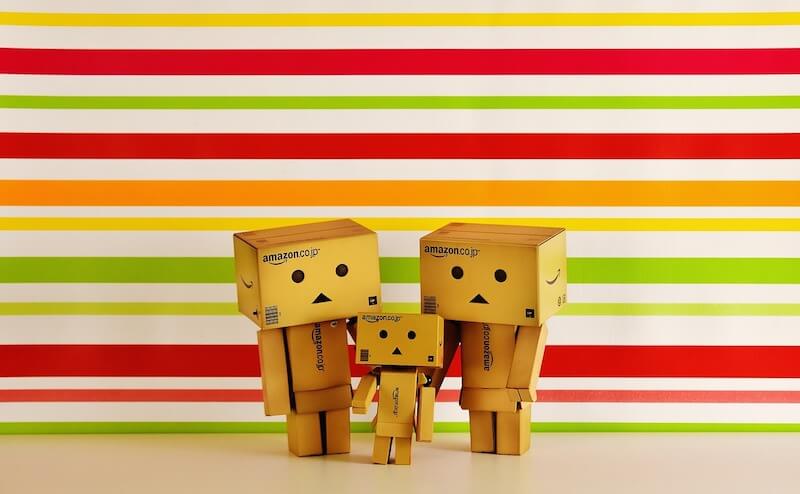Today Tharawat Magazine is a leading publication for family businesses, but did you know that the company is in itself a family business?
In our second podcast, Senior Editor James Lee speaks to Editor-in-Chief Ramia El-Agamy as she shares what it’s like to work with her family:
To listen to part 1 of the podcast about Tharawat Magazine’s Origins Story, click here.
[Transcript]
James: But once again going back to the original point, you yourself are part of a family business and Tharawat is a family business in itself. So what family members do you work with inside the company?
Ramia: So founded, or let’s put it this way, idea pitched by my father who I still work with today, every day. And you know like with many families, even though my mom is not directly involved with the business, she makes most of the decisions or let’s put it this way, we very much rely on her judgement. And she is so rarely wrong but don’t tell her I said that so. The second generation is my two sisters and myself so we have Farida and Shereen who are working alongside each other. It’s been an interesting experience being a fully involved second generation.
I think for us it’s been particularly hard because everyone says ‘Oh you’re so great at dispensing advice’ and I’m like ‘Yeah but to be realistic, I think what makes us so credible is that we’re not shy about admitting we’re not following the best practice either always. We set an extremely high bar for ourselves because we know we want to be a role model in more ways than one but it’s really hard. We find the exact same traps as many families we’ve interviewed in the past. It’s funny to read stuff and read other people statements and just recognize yourself in that so fully. Sometimes it’s funny ha-ha and sometimes it’s funny like making me cry. It sounds all-too-familiar basically.
James: OK so you work more or less with your entire immediate family. What sucks about that? Blatantly put.
Ramia: Blatantly put, I say this always: the same things that are great also suck sometimes. I think because I always say the family businesses strengths are also its weaknesses. So if you talk about it being a strength that we are all emotionally connected to each other, I think you can easily imagine, and I’m sure as part of the team, you sometimes witness it indirectly, the emotional ties are also what hold you back and sort of drags you down and can make a day or an interaction extremely difficult. So that’s one aspect.
I think another aspect is we tend to see it as a weakness of the family business model that we are informal. I maintain that’s a weakness especially when you reach a certain size, you have to look at structure but I also think that weakness can be a huge strength because informality can also lead to rapid decision making. We can be more spontaneous; we can take risks without over analyzing things. Sometimes business should still be a gut business and should be about how your intuition is driving you and then it’s like we say, do it fast, fail fast and then move on or succeed.
There’s also things like you never really grow up in the eyes of your parents and it’s very hard to start treating your sisters as professionals as opposed to your siblings. I see a lot of our interviewees as well struggling with creating their own identity inside the family business.
You should never forget that first of all you, are yourself. You’re not just someone’s employee or someone’s daughter, niece, nephew, brother, sister, cousin or whatever. But you are first and foremost yourself and I think when you work in a collective thinking environment like a family business, that sometimes starts to go under and you have to be really careful that that doesn’t happen.
James: Overall is it a net positive or a negative to be in a family business?
Ramia: What do you think we’re doing this podcast? It’s overall positive. James is using this podcast to shamelessly ask me questions he would never ask me personally. It’s a huge Oprah moment right now here in the studio. No, overall absolutely positive.
I highly recommend the family business model and I maintain this, I don’t think our generation can emphasize this enough, the millennial generation which I’m also still part of sort of, to be able to work with someone who shares your values is not always a given, especially in this world and I think what we’ve seen after the many crises that are behind us and the many crises that are in front of us is that you spend so much time at work that you need to choose your career carefully.
Most of all, choose who you surround yourself with and who you work with carefully. If you’re lucky enough to have a family that shares most of the fundamental ethical things that are important to you, then I say why not because the odds are very high that you’ll be happier at work, knowing that you’ll be working towards a purpose that you really truly understand and support. Now this is the ideal case, I’m very much aware this is not always the case and I also know some may get forced into the family business which is fundamentally wrong but if you’re asking me generally do I support the idea or would I do it again in a heartbeat, definitely.
James: If you were to do it again or you were to look at yourself seven years ago and knowing what you know now, what would you tell yourself? ‘Oh young Ramia, you are also filled with dreams and hopes…’
Ramia: I’d say don’t go into publishing, what’s wrong with you. (Laughs) I think if I could go back, those many years, like you make me sound so old. I think we should put in the podcast description just how old I am just to clarify this for everyone, I’m not that old, depends on perception I guess… I think if I could go back to the beginning, I would tell myself to take myself seriously as an entrepreneur. Even though I was working with family before and also had clients that were family businesses which, by the way, gives you an extended feeling that you’re always working with people who are related to you because family businesses we tend a bond extremely quickly like there’s an immediate deep tie.
I’m still in touch with at least 80% of the people that we’ve interviewed or had interaction with here was this bond immediately and there was this beautiful link to the storytelling aspect but if I were to go back I would tell myself to take myself more seriously as an entrepreneur, isolated from the whole collective thinking to dedicate a lot of time to teaching myself what it really means to be part of a business.
I personally feel the education system does fail us in that respect. I don’t know how you feel about it and I know that many other next-gen members feel like that that when you graduate from University or from whatever school you’ve done, you’re just not ready and no one has taught you anything that seems remotely relevant to what faces you as an entrepreneur. And I’m saying that as somebody who graduated with a business degree so I can’t even imagine graduating from engineering or whatever. We’re taught way too much how to be employees and not taught enough how to be entrepreneurs.
Now we have a lot of degrees in family business but I still maintain what it boils down to and what will make your family business last by enjoying it is your entrepreneurial spirit. It’s good to understand what a family business is and why it has its own characteristics and it’s like going to group therapy basically with other family business members and exchange the common challenges but ultimately what it comes down to is you’re either a good entrepreneur and business leader or you’re not.
There in that respect, being part of a family business or not doesn’t really make a difference. That’s a universal something so yeah, if I could go back, I would tell myself much earlier to start working on myself as a serious entrepreneur who should be able to do many things down the line.

